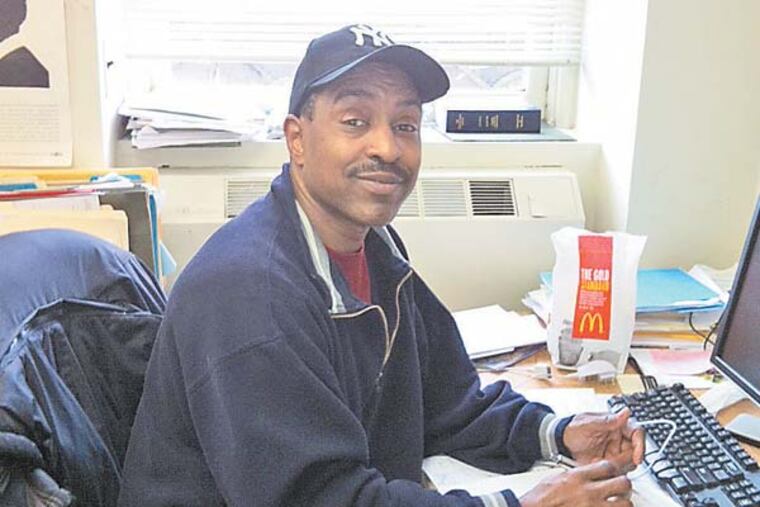Uninsured S.E. Pennsylvanians have nearly doubled since 2000 - survey
Nearly 29,000 people ages 18 to 64 lost health insurance coverage in Southeastern Pennsylvania over the last two years, according to a survey released Thursday.

Nearly 29,000 people ages 18 to 64 lost health insurance coverage in Southeastern Pennsylvania over the last two years, according to a survey released Thursday.
President Obama's health-care overhaul, approved in 2010, was meant to greatly reduce the numbers of uninsured people beginning next year, in large part by expanding Medicaid.
But Gov. Corbett, who has cut state-subsidized insurance in several ways, said Tuesday that he would not accept the expansion for now, raising concerns that the trend will worsen.
The ranks of the uninsured have been rising for more than a decade. The number in Southeastern Pennsylvania has nearly doubled from 2000 to 2012, reaching 305,000 nonelderly adults, the survey estimated.
That's the most since the survey began more than 20 years ago.
Darnell Hendrix, of Olney, lost his coverage last year when Hostess Brands declared bankruptcy, shutting down the Northeast plant where he had long worked as a machinist. His daughter, Tashay Meares, 24, of Langhorne, a graduate student who had been covered under his policy, also lost it.
Hendrix, who has two herniated disks, is treating minor back pain with ice and heat: "If I rupture it real bad, it would shoot down my legs and it would prevent me from walking."
At 46, Hendrix is a member of the demographic that is most vulnerable to economic trends: people who are too young to be covered by Medicare and too old for the State Children's Health Insurance Program. Much of the insurance expansion in the Affordable Care Act is aimed at this group.
The new statistics from the Southeastern Pennsylvania Household Health Survey showed big differences between city and suburbs, largely due to poverty and race.
In Philadelphia, 27.1 percent of nonelderly adult Latinos were uninsured in 2012 compared with 20.4 percent of blacks and 10.7 percent of whites.
Without affordable health insurance, said city Health Commissioner Donald F. Schwarz, "fewer adults will go for basic health care," putting off routine screenings for high blood pressure and cancer. More people will get sicker, end up hospitalized, "and ultimately die because they have not gotten care early," Schwarz said.
The survey found that the percentage of women who did not get recommended pap smears, breast exams, and mammograms rose between 2000 and 2012, said Francine Axler, who directs the project for the Public Health Management Corp.
There is no equivalent survey for the rest of the state or New Jersey, although it typically has reflected national trends.
Pennsylvania has had lower rates of uninsured than the rest of the nation because more employers here offered coverage. But firms everywhere are cutting insurance, a move that was speeded up by the economic downturn.
Also a factor were recent policy changes in Pennsylvania, such as Corbett's decision, just weeks on the job, not to fund adultBasic, said Judy Solomon of the Center on Budget and Policy Priorities in Washington. That state-subsidized insurance plan for low-income working adults had covered more than 40,000 people.
A year later, tens of thousands of people lost Medicaid coverage as a result of a controversial move to reduce a backlog in mandatory reviews. The Corbett administration said most were ineligible; advocacy groups said state workers lost much of the paperwork needed for eligibility.
Advocates said confusion over a third, more recent change, to eliminate a support program known as cash assistance, pushed more eligible clients off the Medicaid rolls.
Many of the uninsured in all three groups - and perhaps a half-million more of the state's estimated 1.3 million people without coverage - were intended to receive insurance beginning next year by expanding Medicaid.
But last year's U.S. Supreme Court ruling upholding the law made the expansion optional. Democratic governors have leaned toward adopting it. Many Republicans oppose it, although six GOP governors so far have said they would accept the expansion, which would be largely paid for by the federal government.
New Jersey's Gov. Christie has not decided.
Gov. Corbett this week said he would not expand Medicaid, for now, unless the Obama adminstration offered more flexibility, saying that it would cost the state too much. The decision will be taken up by the General Assembly as part of this year's budget process.
Expanding Medicaid "would make an enormous difference for people," said Richard Weishaupt, a senior attorney for Community Legal Services, who also argued that it would benefit the state treasury and the state economy in the long run.
The other main insurance provision of the federal health law - insurance exchanges with subsidies for low-income people, which Corbett decided to let the federal goverment run in Pennsylvania - was aimed largely at people who work.
Corbett spokeswoman Christine Cronkright said the governor can cover more people if the state gets more independence.
"We cannot provide more access to health care by expanding a broken system," she said.